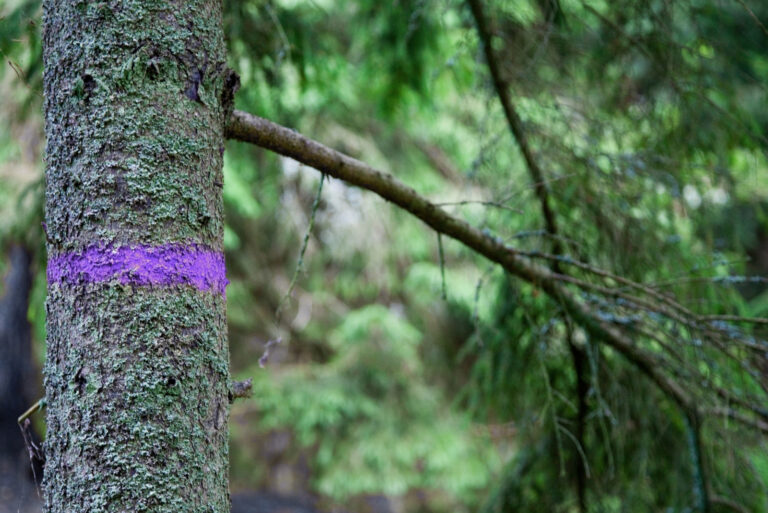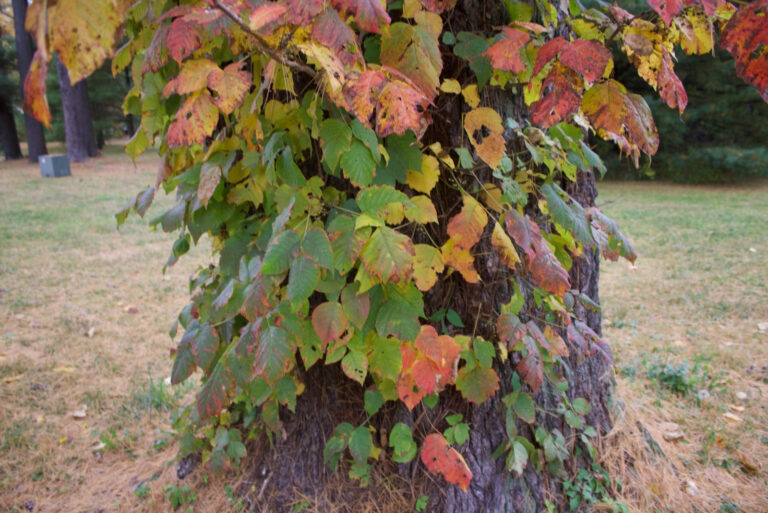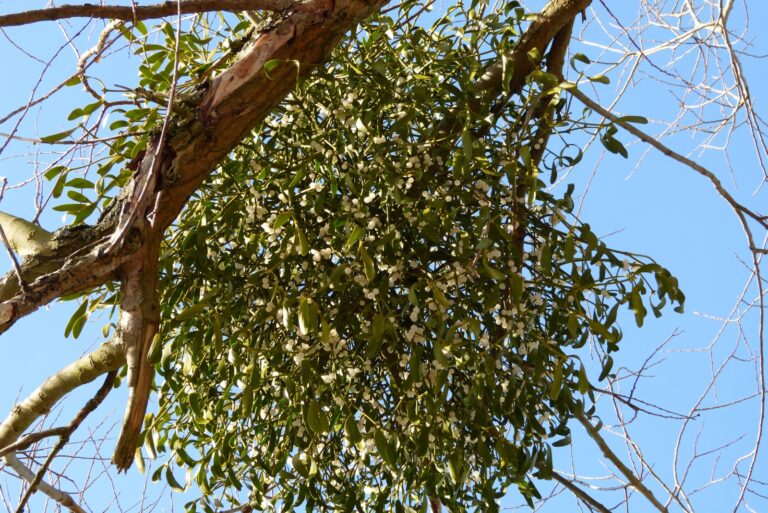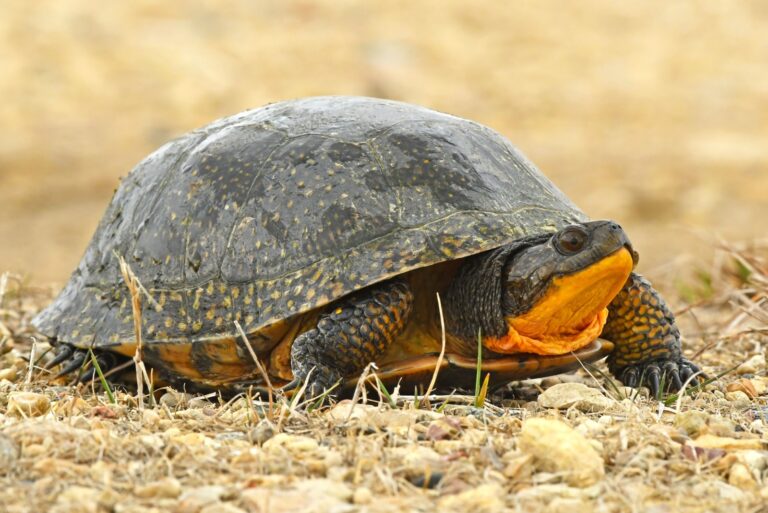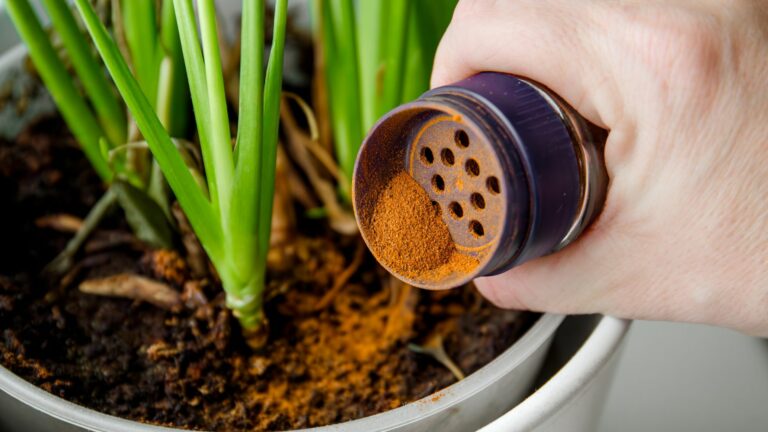11 Creatures Pennsylvania Gardeners Aren’t Allowed To Remove
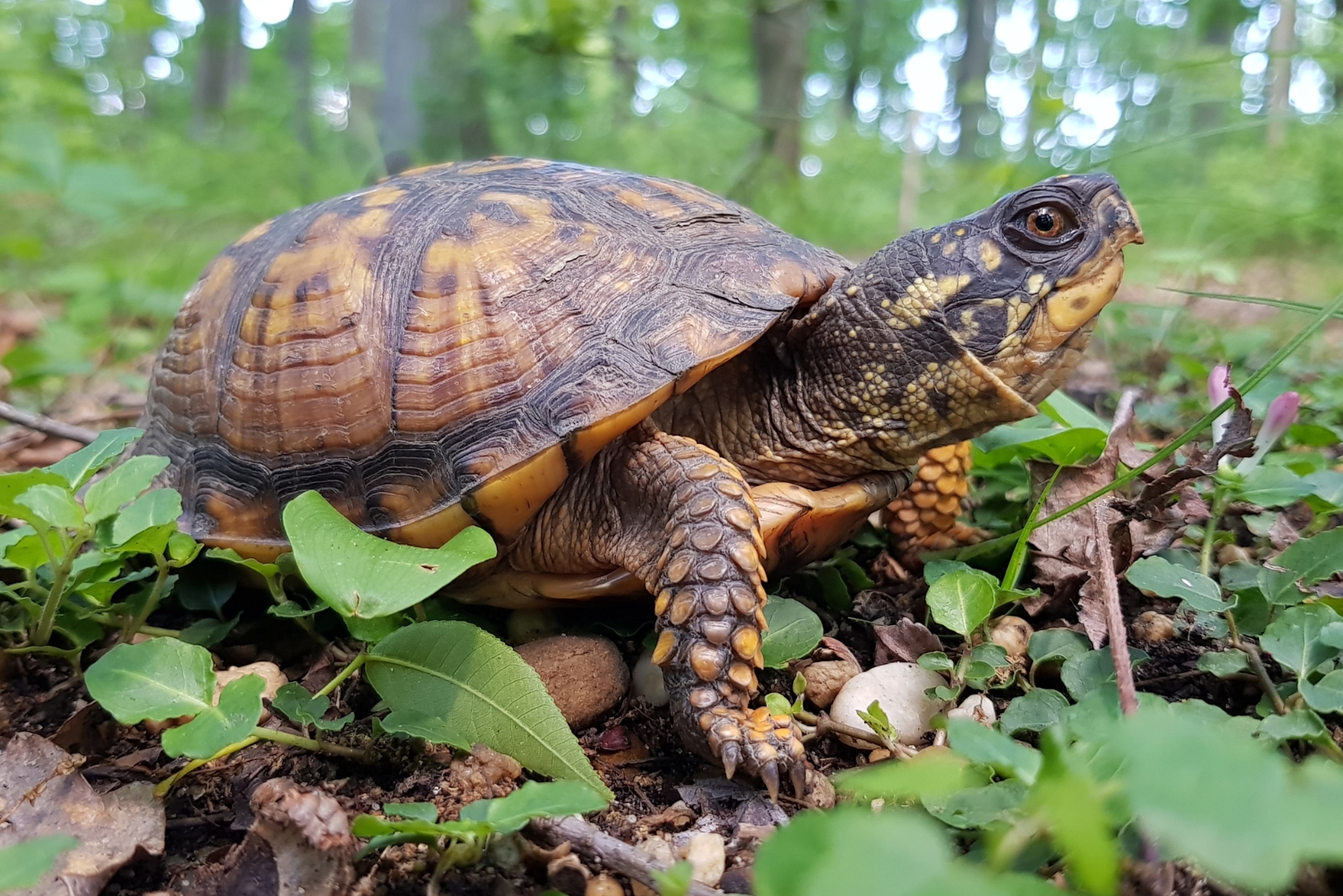
Pennsylvania has a whole list of protected critters that can wander right into a garden without warning. I’ve bumped into a few and had to double-check the rules before doing anything.
Some of them are tiny, some are bold, and all of them fall under strict protection. Knowing who’s on that list makes every unexpected visitor a bit easier to handle.
1. Eastern Box Turtle
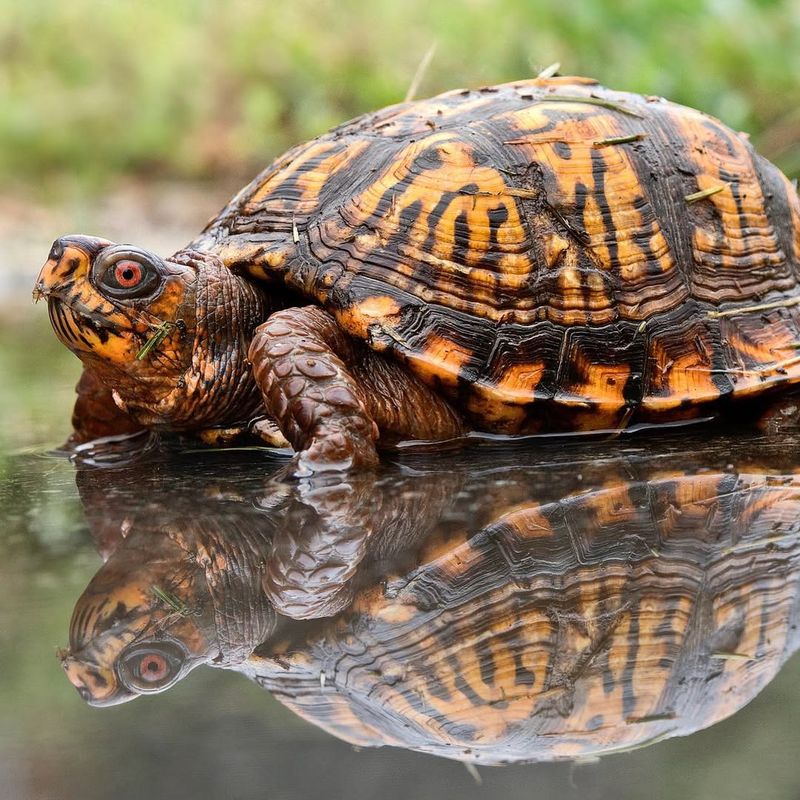
Spotting one of these colorful reptiles shuffling through your Pennsylvania flower beds might seem like a perfect opportunity to relocate it, but think again. Eastern box turtles are protected under state law because their populations have been declining for decades.
Moving them disrupts their home territories, which they remember and return to throughout their long lives. If you find one munching on berries or digging near your tomatoes, simply let it be and enjoy watching this ancient creature go about its day in your garden.
2. Ruby-Throated Hummingbird Nests
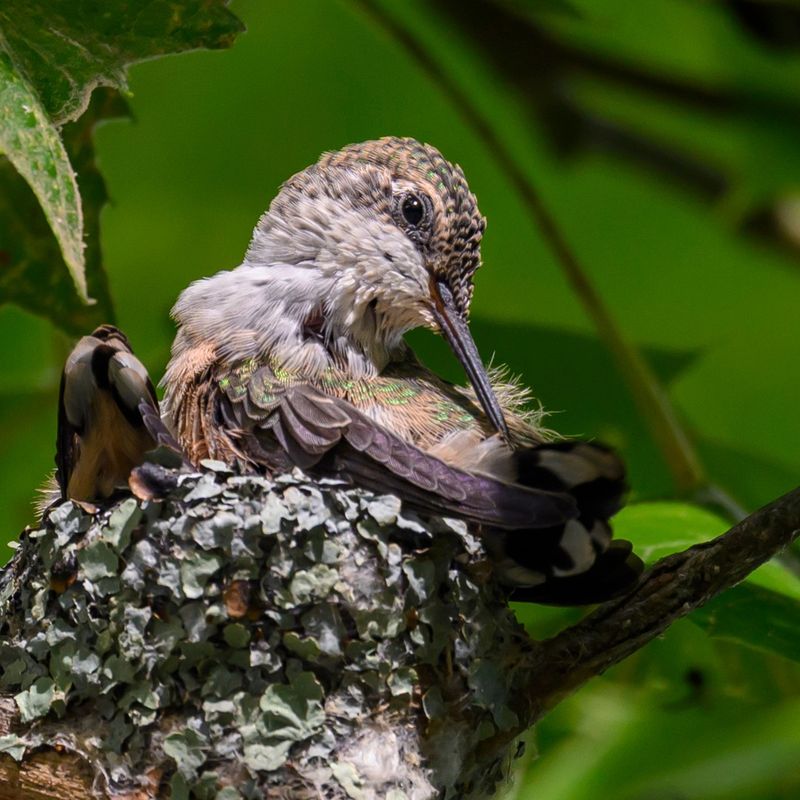
With nests barely bigger than a walnut shell, these tiny structures are easy to miss among your Pennsylvania shrubs and trees. Federal law protects all migratory bird nests, including those built by ruby-throated hummingbirds during their breeding season.
Even if a nest appears abandoned, removing it without proper permits violates the Migratory Bird Treaty Act. Instead of disturbing these delicate homes, consider yourself lucky to witness such incredible craftsmanship. Your garden becomes a sanctuary when hummingbirds choose it for raising their young.
3. Northern Long-Eared Bat
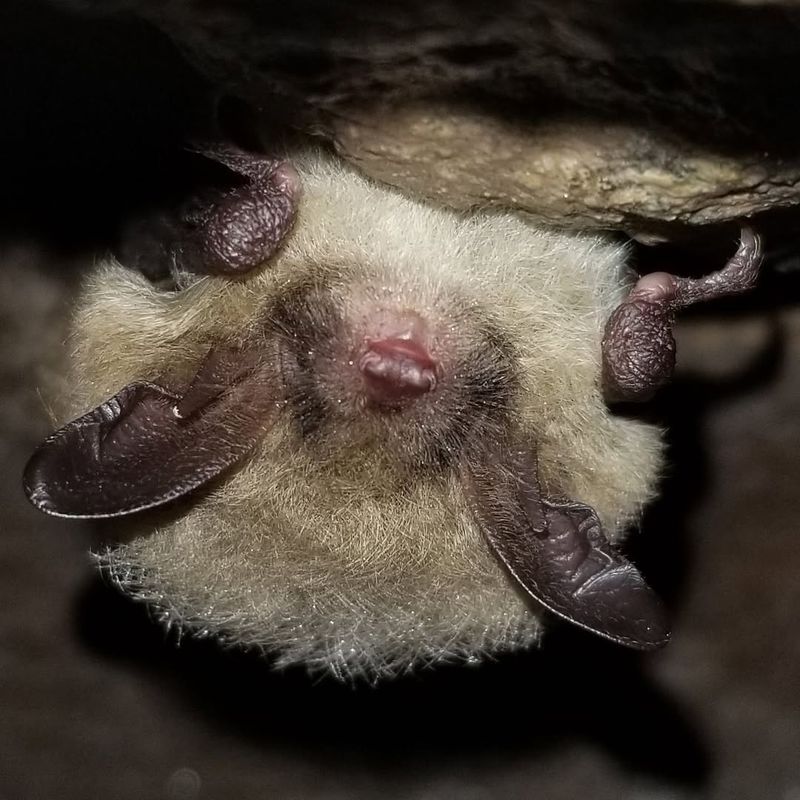
Bats might give some Pennsylvania gardeners the creeps, but these flying mammals are incredible pest controllers worth celebrating. Northern long-eared bats are federally threatened, making it illegal to harm them or disturb their roosting spots.
A single bat devours thousands of insects each night, including mosquitoes and garden pests that would otherwise damage your plants. If you discover bats roosting in your garden shed or under loose bark, contact a wildlife professional rather than attempting removal yourself. Their presence actually benefits your gardening efforts tremendously.
4. Monarch Butterfly Caterpillars
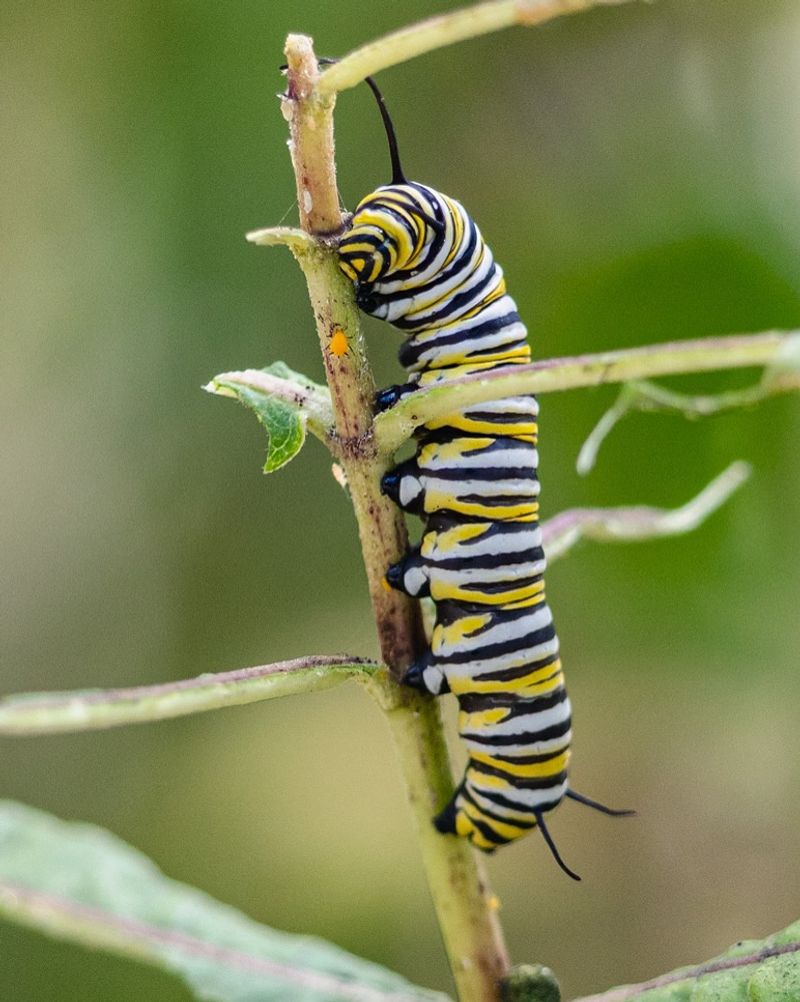
Those distinctive striped caterpillars munching your milkweed aren’t pests—they’re future monarchs preparing for an incredible migration journey. Pennsylvania has regulations protecting monarch butterflies and their caterpillars due to population declines across North America.
Milkweed is the only plant monarch caterpillars can eat, so finding them means your garden supports these essential pollinators. Rather than removing caterpillars or cutting down milkweed, embrace your role in conservation. Watching caterpillars transform into beautiful orange and black butterflies makes any temporary leaf damage worthwhile for Pennsylvania nature lovers.
5. Red-Shouldered Hawk
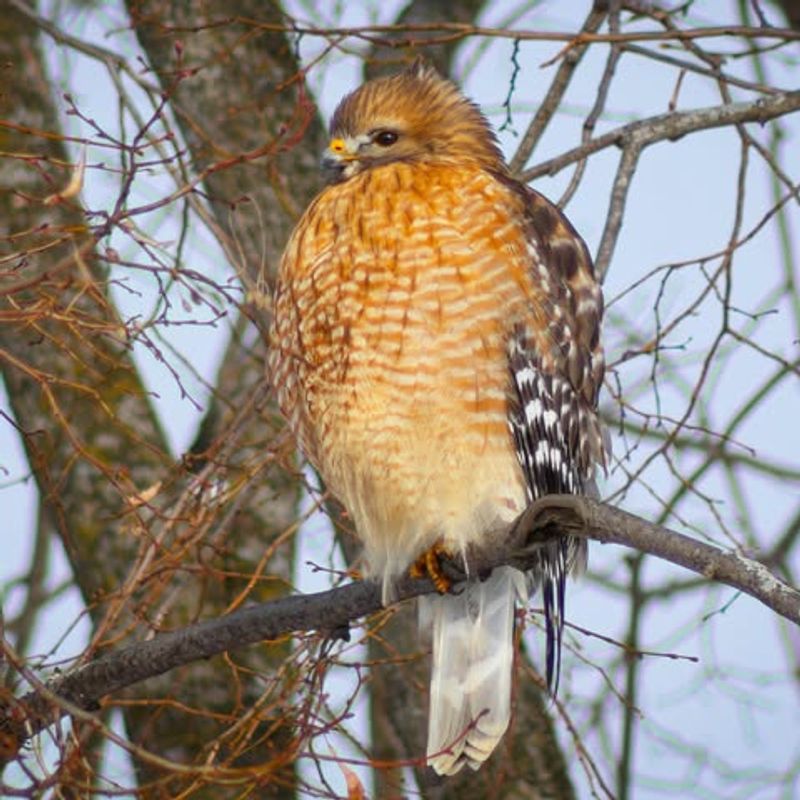
Hearing the distinctive call of this raptor echoing through your Pennsylvania property signals a healthy ecosystem at work. Red-shouldered hawks are protected under both state and federal laws, making any interference with them or their nests illegal.
Some gardeners worry about chickens or small pets, but these hawks primarily hunt rodents, snakes, and amphibians that could damage gardens. Their presence actually indicates your yard supports a balanced food chain. Appreciate these magnificent hunters from a distance and know they’re helping control pest populations naturally throughout Pennsylvania neighborhoods.
6. American Toad
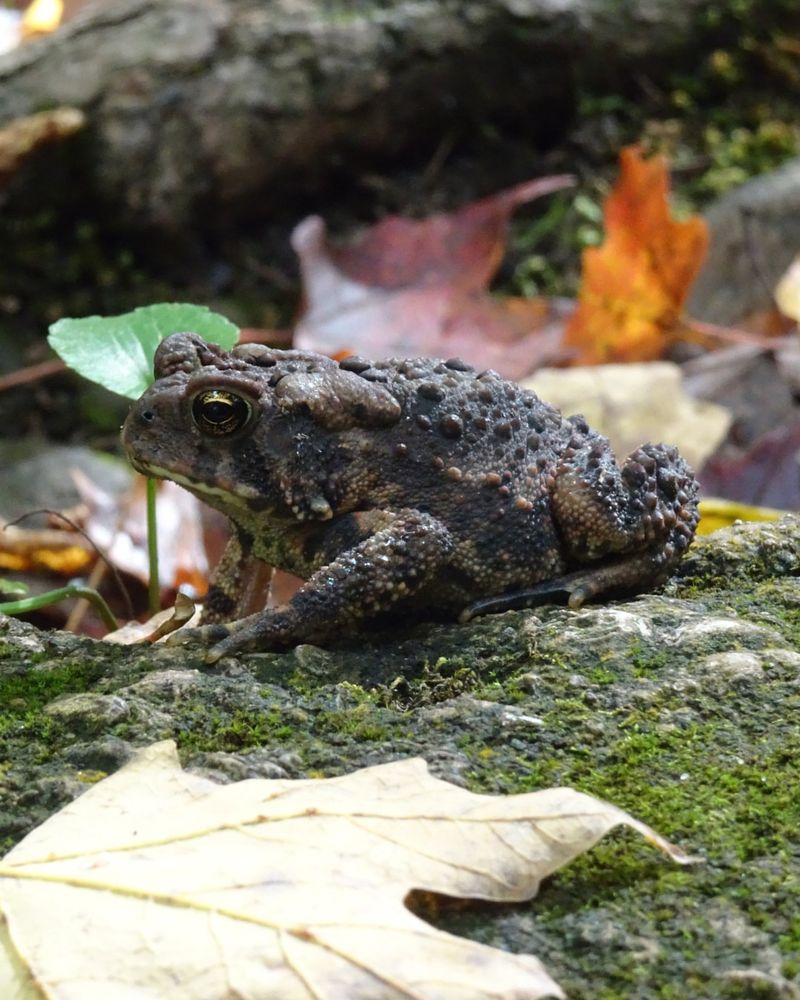
Hopping among your Pennsylvania vegetables at dusk, these bumpy amphibians are garden superheroes in disguise. American toads consume enormous quantities of slugs, beetles, and other insects that would otherwise feast on your carefully tended plants.
Pennsylvania law protects native amphibians from unnecessary removal or harm. Creating toad-friendly spaces with shallow water dishes and shady hiding spots encourages them to stick around. Their nighttime pest patrol saves you from using chemical treatments, making them valuable allies for organic gardening throughout the growing season in Pennsylvania.
7. Chimney Swift Nesting Sites
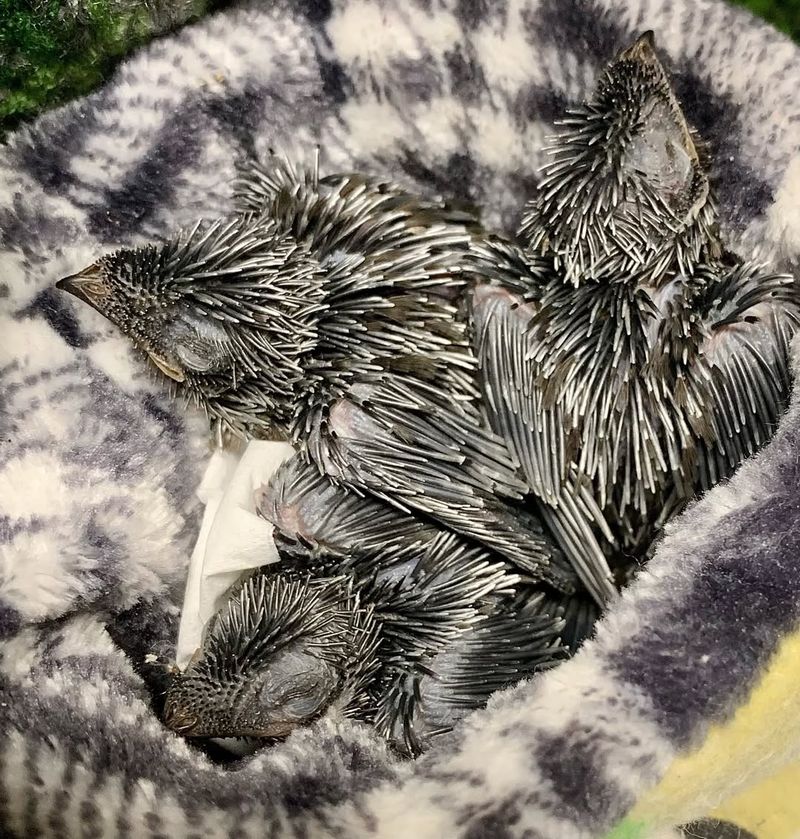
That chittering sound coming from your chimney during summer months isn’t a problem—it’s a protected bird family raising their young. Chimney swifts are federally protected migratory birds that have adapted to nesting in chimneys throughout Pennsylvania.
Removing their nests or blocking chimney access during nesting season violates federal law and carries hefty penalties. These aerial acrobats consume thousands of flying insects daily, providing natural mosquito control for your entire neighborhood. Wait until fall when they migrate south before cleaning chimneys, ensuring Pennsylvania remains welcoming for these fascinating birds.
8. Eastern Garter Snake
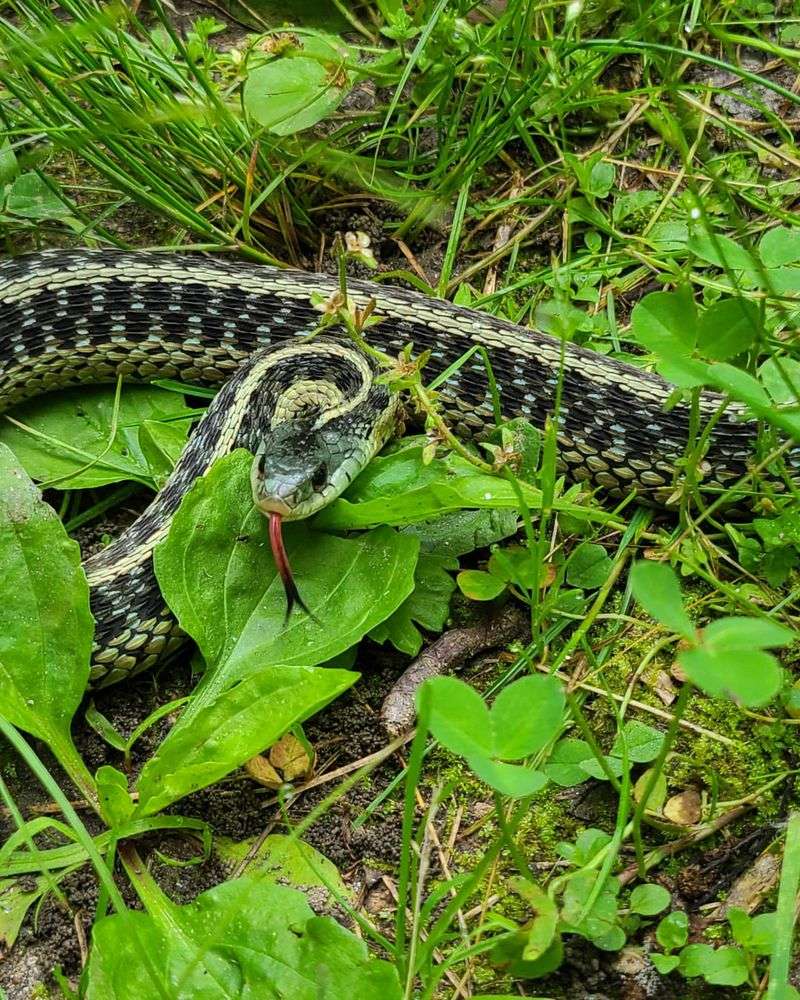
Slithering through Pennsylvania gardens, these harmless snakes often startle unsuspecting gardeners reaching for tomatoes or weeding flower beds. Eastern garter snakes are protected in Pennsylvania because they control rodent and slug populations without posing any danger to humans or pets.
Many gardeners mistakenly fear all snakes, but garter snakes are completely non-venomous and prefer fleeing over confrontation. They’re actually signs of a healthy garden ecosystem. Learning to coexist with these helpful reptiles means fewer pests eating your harvest and maintaining natural balance throughout Pennsylvania landscapes.
9. Little Brown Bat Colonies
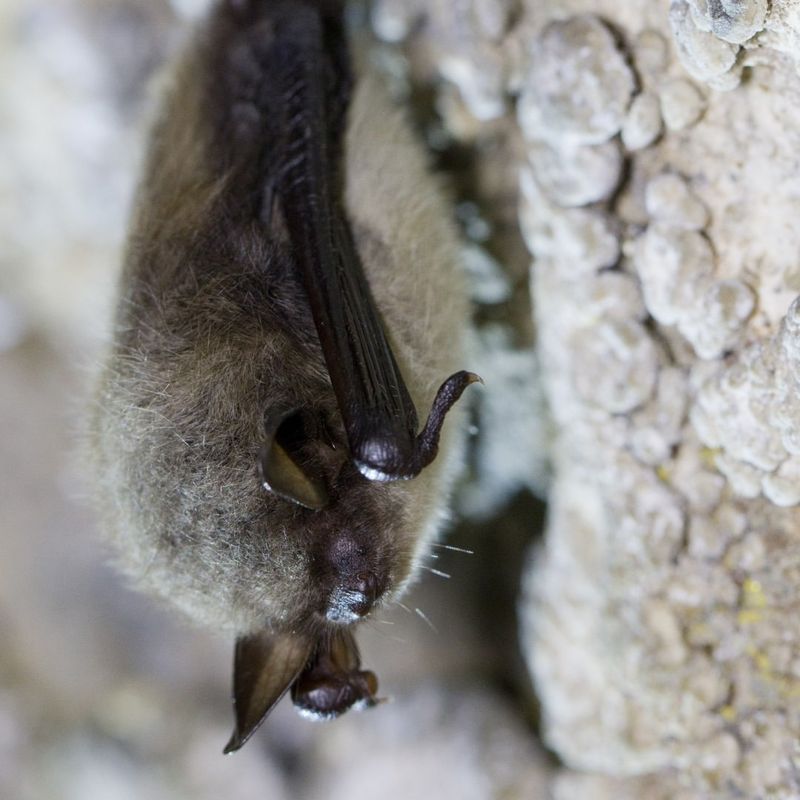
Discovering a colony of these tiny mammals in your Pennsylvania garden shed might seem alarming, but they’re actually facing serious population threats. Little brown bats are protected species suffering from white-nose syndrome, making their conservation critically important.
Each bat consumes its body weight in insects nightly, providing incredible natural pest control for gardens and yards. Pennsylvania law prohibits disturbing bat colonies, especially during maternity season when mothers raise pups. Professional wildlife experts can help with humane exclusion methods once babies are grown, ensuring legal compliance while protecting these beneficial creatures.
10. Wood Turtle
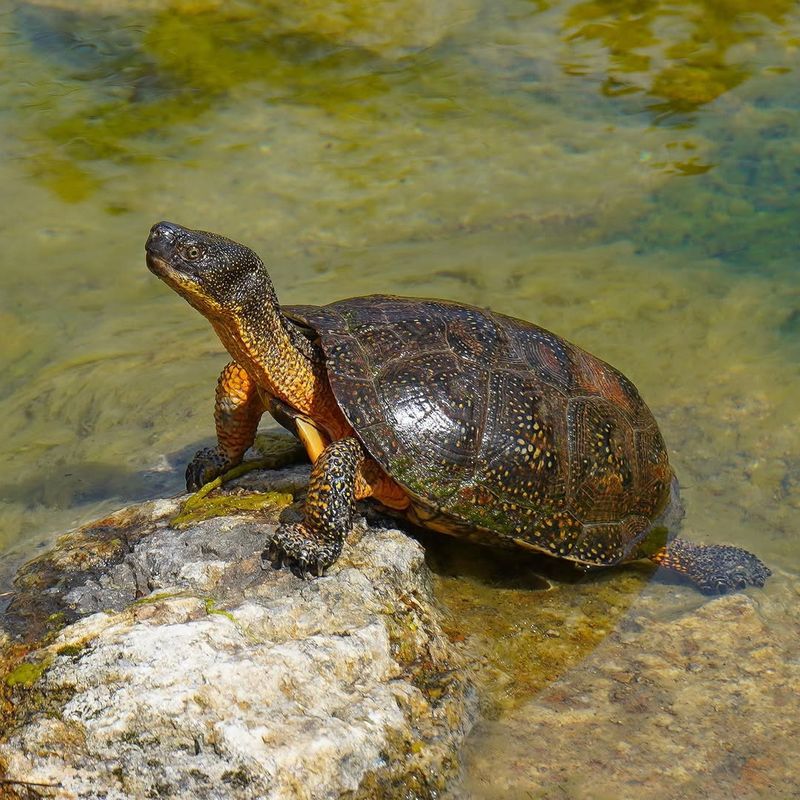
Encountering one of these beautifully patterned reptiles near your Pennsylvania garden stream or pond is increasingly rare and special. Wood turtles are endangered in Pennsylvania, with strict protections prohibiting any collection, harassment, or removal from their habitat.
Their sculptured shells and orange-tinged skin make them distinctive among Pennsylvania’s turtle species. Habitat loss has devastated their numbers, making every individual precious for species survival. If you’re fortunate enough to have wood turtles visiting your property, consider it a privilege and let them roam freely through Pennsylvania’s remaining wild spaces.
11. Barn Swallow Nests
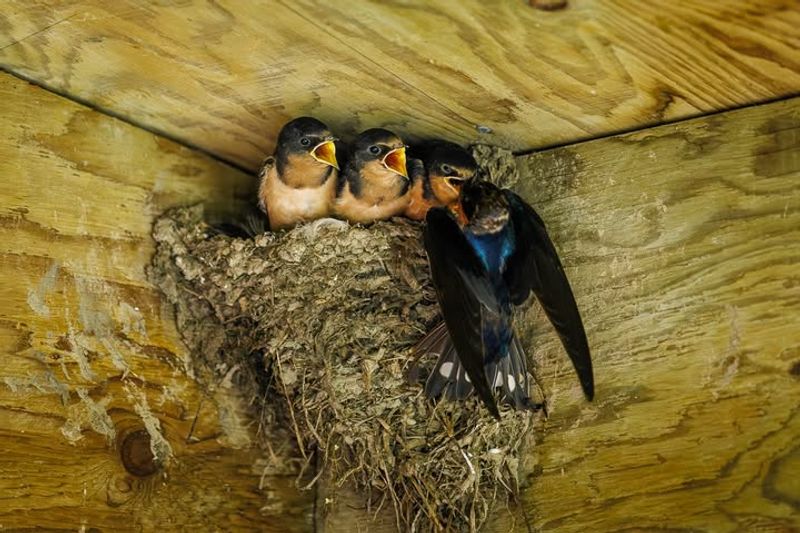
Those mud cup nests tucked under your Pennsylvania porch or shed eaves belong to tireless insect hunters working overtime for your benefit. Barn swallows are protected migratory birds under federal law, making nest removal illegal during breeding season.
A single pair catches thousands of flying insects daily, including mosquitoes, flies, and garden pests that bother both plants and people. While their nests might seem messy, the pest control services they provide far outweigh minor inconveniences. Pennsylvania gardeners gain natural allies by welcoming these acrobatic birds back each spring for another season.

